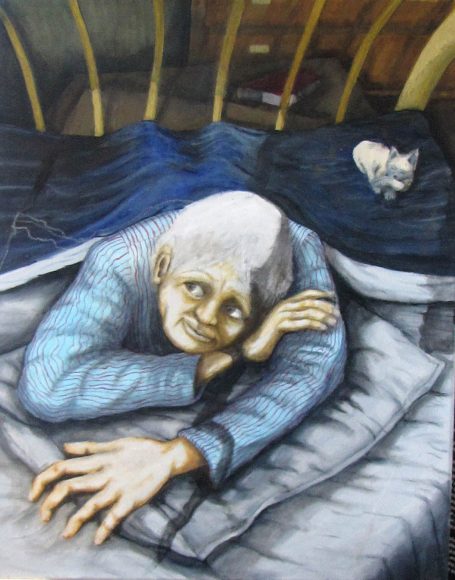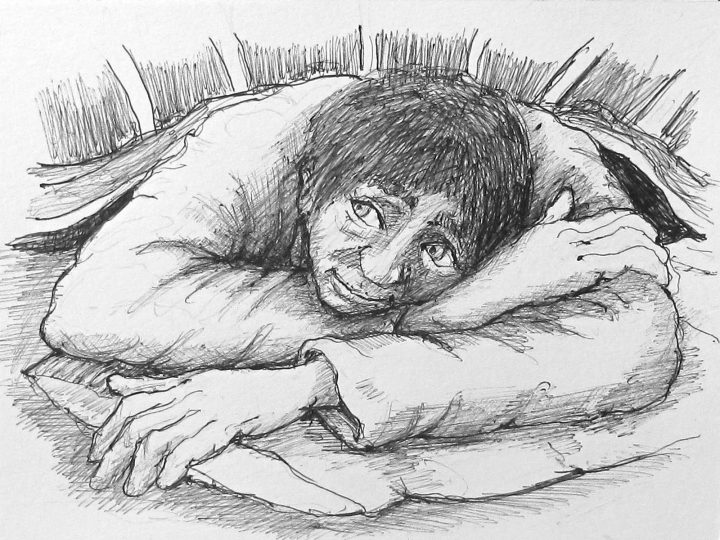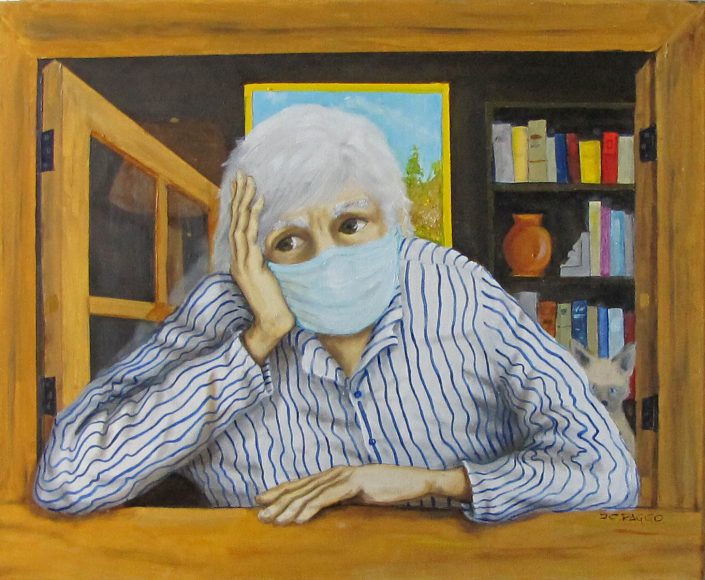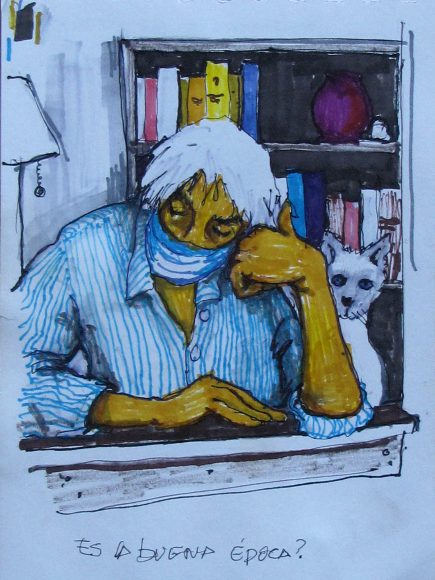The shrillness of “normalcy”
Can this phase of capitalism known as globalization kill itself and then reinvent itself? Or can it come up looking good, with another brand name? What would that post-COVID-19 society look like, socially, culturally and politically?
That is the essence of our theme statement for this issue. But in order to proceed, we need to define what constitutes globalization and when it actually started.
Globalization, as per popular mainstream wisdom, was initiated in 1492 – when Christopher Columbus fumbled, stumbled and made landfall on what the local Lucayan people called Guanahani… later called the Bahamas! Some others say it all began in 1498, when Vasco da Gama made it to Calicut, on the Malabar coast in India.
There is evidence to suggest that Christopher was not only a commissioned explorer, but also a rogue adventurer and bounty hunter, with poor math skills. (He got the earth’s circumference wrong and thought he could reach India faster by sailing westwards.) Eventually, after four trips he was brought back in chains to Spain. By that time, he had cut off the hands of a number of his sailors as well as of Indigenous people, for mutinying, and had effectively decimated several Indigenous pre-Columbian civilizations.
There are others who would like to suggest that Genghis Khan, with his conquering and unifying skills along the Silk Route, or Marco Polo as he headed for China to discover and embrace noodles and silk, were pivotal characters for globalization.
But hold on! These are the Investopedia, World Economic Forum (WEF) and International Monetary Fund (IMF) versions of “exploration, discovery and the opening up of trade routes,” packaged and sanitized to look and feel like a tribute to “man’s” insatiable quest for “discovery and adventure.” The mission, as we came to know later, was to carry away quantities of black pepper, coriander, red pepper, bay leaves, mustard, tea and turmeric, in bulk, while concurrently decimating the rights of the Indigenous population, and making “settlerism” a universal doctrine of colonization, occupation and genocide.
So, with some salt, some pepper, some chocolate and vanilla, and plenty of multi-coloured sprinkles – like religion, moral education, building ports and railway lines – the opening up of the raw material requirements for the first industrial revolution were initiated. Now, all this was about colonization – about extraction, about carrying away various ores by ship and rail, about settling and displacing, about forced eviction! About the advent of industrial capitalism. About cotton, indigo, sugar, coffee, potatoes and plunder. About forcing cash crops on peasants worldwide and wiping out self-sustaining food production.
Far from being globalization, it was plunder and occupation. Now, cotton, sugar and the harvesting of various plantation products needed handpicking. And therefore, this became the basis for the trans-Atlantic slave trade. Slaves did not get wages. Not a cent. Treated as human chattel, they were bought and sold to erect the massive foundation of this settler economy that emerged as a world imperial power. Slaves did everything. They covered a whole gamut of skills, from working as bakers, barbers and basket makers to blacksmiths, brewers, cooks, dairy workers, coachmen, dancers, fiddle makers and fiddlers, as well as firemen, shipbuilders, sailors, weavers and wheelwrights. We do not often realize how ingenious this brutal system was in building the foundation of what is now the US.
Chemistry and Hollywood!
In 1979, however, a chemistry major turned barrister, Margaret Thatcher, and a grade C actor turned President, Ronald Reagan, jointly scrapped government entitlements and regulatory controls, fist-pumped for a more “robust free-market economy,” and upheld British and US exceptionalism in world domination. Through force (continuous military interventions abroad) and the mantra of “free trade,” their followers in Canada, like Brian Mulroney, Jean Chrétien, Jacques Parizeau, Paul Martin and now Chrystia Freeland and Trudeau Jr, have continued to pray at the altar of globalization.
Neatly folded in to these “exciting” new policies was a series of paralyzing attacks on unions, erosion of human rights, a privatization spree of existing public infrastructural arrangements, and further undermining of public health, pensions, education and housing.
This was promptly followed by a rather deft “common sense” approach to lifting cross-border tariffs, with favoured nation status given to some but not all, and “free trade” sold as a panacea for the economic crisis the West was facing. In fact, the UK at that time, which was then in such a dilapidated state, was the only developed country ever that got a 3.2-billion-dollar rescue package from the IMF.
One of the key components of the grand Free Trade mission was to encourage the companies to move their manufacturing (and the related skills) to “LCC:” low-cost countries. The sales pitch clearly suggested to large, mid-sized and small enterprises to look for raw materials and finished goods abroad, if they wanted to profit. Move machinery – even head offices and the means of production – abroad!
Now that is the true starting block of the globalization race. Not Columbus, not Da Gama, not Genghis Khan or Marco Polo. It was Reagan and Thatcher.
Nestled in these arrangements was total impunity for multinational corporations to profiteer scandalously, while stepping all over environmental requirements. It gave birth to a new economy, based on a dynamic “supply chain” – an economy of bulk-buying at enormous discounts, bringing in and storing materials in massive, digitized, automated and robotized warehouses, and creating the concept of third-party logistics. Independent organizations that owned or leased 53-footers to haul and deliver just-in-time goods and materials, albeit in small quantities, became contractual deliverers, based on local demands.
Now these warehouses still needed humans to run them! And so came the advent of entire warehouses populated by underpaid people of colour, recent immigrants, refuge seekers – on a contract basis, with no job permanence or adequate health and safety provisions – who could of course be hired and fired, to guarantee “low-cost wages!” All the conditions were then in place to ensure the highest possible margins in the supply chain from factories abroad to households in North America and Europe.
Today, this very warehouse-based economy has been defined as “essential” in the context of the success of the globalized economy. In his incisive essay, Mostafa Henaway, an organizer with the Immigrant Workers Centre and a Concordia University lecturer and doctoral student, surgically unmasks this development of the warehouse- based economy and deftly exposes its “chokepoints.” In the context of COVID-19, this economy was defined by governments as “essential.” This is an element of globalization that must have caught the big unions by surprise.
Sam Boskey, former Montréal City Councillor, civil rights activist and perennial learner and teacher of world history (right down to each borough in Montréal), expands on the issues raised by the theme, Can this phase of capitalism kill itself and then reinvent itself? Or can it come up looking good, with another brand name? What would that post-COVID-19 society look like? His answers are blunt and vigorous. He says, “…the pandemic lockdown has demonstrated that in the immediate aftershock of such social upheaval, it is possible for both government and civil society to identify some of society’s most vulnerable members and fashion some short-term palliative measures. In this, we are able to harness the initial spirit of ‘we’re all in this together.’ But entrepreneurial interests will soon regain ascendancy, and our caring about ‘each and every one’ will wane, with the private sector once again overriding the public good.”
Amrit Wilson, a well-known UK feminist and South Asian anti-racism activist for decades, and the author of several books, was interviewed on-line recently by Montréal Serai. In response to the question of whether the essentials of globalization (de-regulation, free trade, etc.) would be phased out, she says “… it is important to remember that we are not simply talking about neoliberalism, but about the shaping of hyper-neoliberalism into fascism. This is certainly the case in India, Brazil, and Hungary where we now see full-fledged fascism, but also in the US and increasingly in the UK.”
Frequent contributor to Serai and well-known journalist and activist from India, Nilanjan Dutta, hauls up the state by the collar, arguing that it is using the pandemic as an excuse and is exploiting lock-down measures and terror to erode people’s will to resist the larger enemy of systemic, widespread profiteering – also known as neoliberal capitalism and globalization. Nilanjan refers to “the mask” not only as a protective device, but also as a metaphor for gagging and prodding the population so that “we are becoming amicable to the idea of a strong and omniscient state.”
You will notice that sprinkled throughout this editorial essay, we have included some paintings by Juan Raggo. Juan is an artist of Chilean origin, now living in Montréal. After studying architecture and art in Chile, Juan arrived in Québec in 1974 for reasons we all can guess. Once in Canada, he worked at the Bureau de prisonniers politiques du Chili and contributed to publications such as El rebelde (The Rebel). The intimate paintings featured in this issue are part of the series “Confinement and Insomnia,” a reflection of the current times, particularly as experienced by the elderly.
Our co-editor Nilambri Ghai reviews the latest book by Egyptian-American writer and aphorist, Yahia Lababidi, Revolutions of the Heart. “In our divided world today, [Lababidi’s book] seeks our transformation as people first, then as citizens of one planet earth, envisioned beyond the divisions of political boundaries… with elements that, like pandemics, do not differentiate one from another.”
Montrealer Sharon Lax’s new book, Shattered Fossils, is reviewed in depth by Jane Affleck. An extraordinary book of short essays on multitudinous issues, “Lax’s stories leave us with a final question: What stories can we begin to tell, in order to remake norms and create an equitable and just post-pandemic world?”
Frequent Serai contributor and Montréal-based author Veena Gokhale injects her own experiences and familiarization process into the review of Raquel Fletcher’s Who Belongs in Quebec? If the title sounds trite after so many decades, it is because the matter remains to be resolved!
Our landing page features the work of Gavin Morais, a Montréal sculptor and video artist whose visceral, alien-like works are reviewed by James Oscar, a past contributor to Serai.
And Montréal’s masked poet Brian Campbell unveils his COVID poem, “Stranger.”
A conclusion
Globalization, as a phase of capitalist mutation, received a punch in the face from COVID-19. The predatory nature of globalization came to a point where the environment, life forms, the food chain and health controls for both animals and humans were prodded until slumbering viruses residing in animals got released into the atmosphere.
Suddenly, we were told to get personal protective equipment (PPE) overnight. We were garrisoned and politely told to stay at home! In Canada, that is. In other countries, like China, India, Italy and elsewhere, it was a punishing lockdown. With curfews, no less. No flying, no travelling, no hanging out, no going to work, and even talking to your neighbour across the balcony was scoffed at.
Factories closed down, except those categorized as “essential.” “Gig” workers were told to stay at home or apply for relief. Landlords were told to hold back rent collection, and banks promptly offered loans with deferred payback (and compounded interest). The pandemic was declared. Governments around the world started pulling out their real money and mixing it in with the money they printed, betting on speculative futures, and began to spend billions on COVID relief. The deal was to return to “normal.” Governments started to look magnanimous, except the few that thought “herd” immunity could save the world and “balancing the budget” was more important than people’s health.
In retrospect, it looks like the essential elements of globalization may be revived again… after a while. But some things will have to change. Liberal and democratic Canada will have understood that the exhortation of public measures like the ones Tommy Douglas fought for would not be enough in this day and age. The government would have to budget for far stricter controls over senior citizens’ care homes (be they public or private), extensive reserve capacity at intensive-care facilities, a far greater emphasis on and protection of frontline healthcare workers, self-sufficiency in the domestic manufacturing of PPE and intensive-care equipment, and a dignified approach to re-educating a large segment of the population that our collective welfare is more important than the fickle notion of “personal freedoms.”
Only the likes of Genghis Khan, Robert Clive, Winston Churchill and their ilk would dispute that kind of change.












